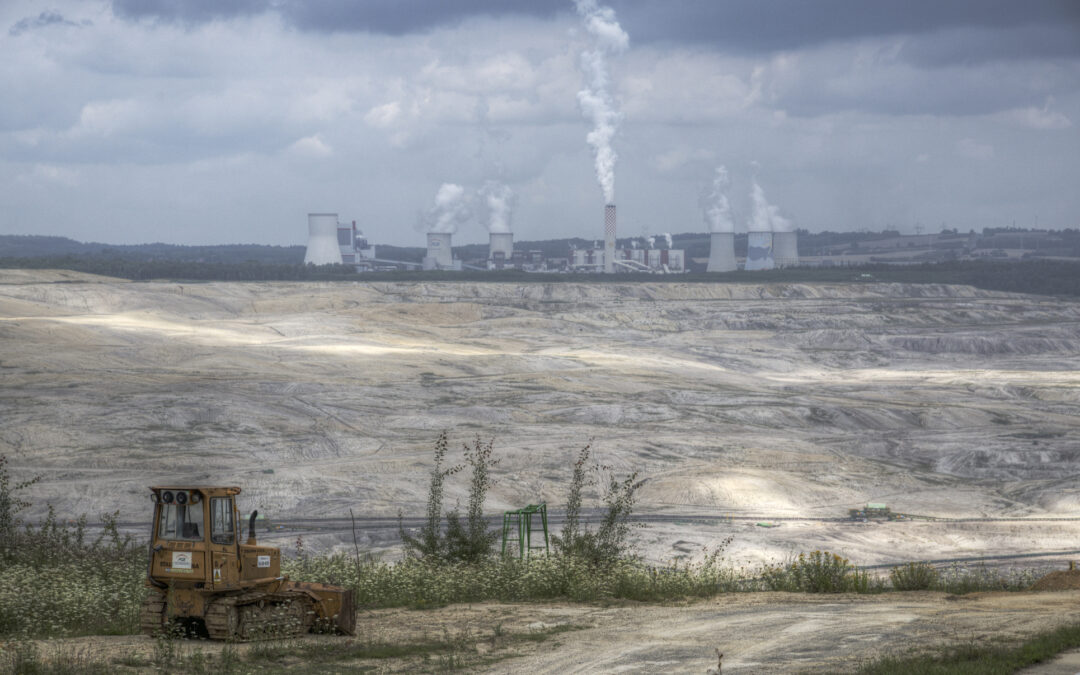The fate of Turów mine – coal from which generates up to 7% of Poland’s electricity – remains in the balance after a court was yesterday forced to delay a ruling on the legality of its environmental permit.
The decision, which allows the mine to continue operating for the time being, was welcomed by the Polish government. However, the environmental groups that brought the case have expressed disappointment that the proceedings will drag on further.
It marks the latest twist in a long-running legal battle over the mine, which has also drawn in Poland’s neighbours, the Czech Republic and Germany, whose borders are close to Turów.
A Polish court has suspended environmental approval for one of Poland's largest coal mines.
The government has condemned the ruling, accusing the court of "unlawfully" acting in the "foreign interests" of German and Czech groups that brought the case https://t.co/hYQIBldTJh
— Notes from Poland 🇵🇱 (@notesfrompoland) June 7, 2023
The provincial administrative court in Warsaw had yesterday been due to rule on the environmental decision that granted Turów, an open pit brown coal mine that feeds a nearby power station, a concession to operate until 2044.
Instead, the court suspended the case because parallel proceedings before the General Directorate for Environmental Protection (GDOŚ) regarding an application from the mine’s owner – state-owned energy firm PGE – to amend the environmental decision have not been concluded.
The judge noted that PGE recently withdrew its bid to amend the environmental decision, which led GDOŚ to discontinue proceedings. However, she stressed that, until the discontinuation becomes final and binding, the administrative court cannot rule on the legality of the permit.
Sprawa kopalni #Turów zawieszona. Może wrócić tuż przed wyborami https://t.co/V3VG0s4T4N
— Rzeczpospolita Biznes (@RPEkonomia) August 31, 2023
This development was welcomed by government figures, who argue that the mine and power plant in Turów are essential for Poland’s energy security.
“The fight for Turow continues,” wrote climate minister Anna Moskwa. State assets minister Jacek Sasin called it “a key decision for Poland’s energy security”, adding that “the functioning of the mine is not threatened and the mining concession is valid until 2044”.
Even before the ruling was issued, Moskwa had insisted that the mine would remain open whatever happened. “Obviously, regardless of this ruling and decision – because we have different experiences – Turow will not be closed. We will defend energy security,” she told Polskie Radio.
Walka o #Turów trwa. Wojewódzki Sąd Administracyjny zdecydował dziś o zawieszeniu postępowania sądowego. Nadal obowiązuje koncesja do 2044 roku i funkcjonowanie kompleksu w #Turów nie jest zagrożone.
— Anna Moskwa (@moskwa_anna) August 31, 2023
A lawyer from one of the environmental groups that has challenged the legality of the environmental decision, Agnieszka Stupkiewicz of Frank Bold, admitted that the court had no choice but to suspend proceedings.
However, she criticised the “scandalous” behaviour GDOŚ, saying that the agency had not kept parties in the case nor the administrative court informed of PGE’s decision to withdraw its bid to amend the environmental decision.
Her group and other climate organisations from Poland, the Czech Republic and Germany brought their case against the environmental decision last year, arguing that there were a number of shortcomings in how it was reached, including a failure to take account of the mine’s impact on the climate.
Nieoczekiwany zwrot ws. #Turowa: zaniedbania @GSrodowiska sprawiły, że #WSA zawiesił postępowanie. Mieszkańcy Bogatyni od lat żyją w zawieszeniu, a rząd ciągle odracza zadbanie o ich bezpieczną przyszłość. Apelujemy o plan transformacji! Więcej: https://t.co/VyZwNT8ONX pic.twitter.com/8qWrriIr9u
— Fundacja Frank Bold (@FrankBold_PL) August 31, 2023
In July, the provincial administrative court in Warsaw ordered the environmental permit to be provisionally suspended ahead of a final ruling, finding that there is a risk of significant environmental damage.
That decision was, however, later overturned by the Supreme Administrative Court. It meant that the mine was allowed to continue functioning until a final ruling on the environmental decision is issued by the Warsaw court.
The Supreme Administrative Court has overturned a decision to suspend environmental approval for Turów coal mine, which helps generate 7% of Poland's electricity.
The ruling was welcomed by the government, which says the mine is vital for energy security https://t.co/aRBUpLXH0A
— Notes from Poland 🇵🇱 (@notesfrompoland) July 18, 2023
Meanwhile, yesterday’s decision by the court to suspend proceedings was welcomed PGE’s CEO, Wojciech Dąbrowski, who said that “Turów mine and power plant will remain one of Poland’s most important sources of energy for at least 20 years”.
“From the very beginning, we have not recognised the legitimacy of any allegations made against the environmental decision on the Turów mine,” he added.
His comments come just a day after PGE presented a new strategy to become carbon neutral by 2040, including abandoning the use of coal by 2030. That will be achieved in part by a government plan to transfer energy firm’s coal assets to a single, separate entity.
Poland’s largest electricity producer, state-owned PGE, has announced plans to achieve climate neutrality by 2040.
That will include ending the use of coal – which is still Poland’s main source of power – for electricity and heat generation by 2030 https://t.co/Zy7e84ioZR
— Notes from Poland 🇵🇱 (@notesfrompoland) August 30, 2023

Notes from Poland is run by a small editorial team and published by an independent, non-profit foundation that is funded through donations from our readers. We cannot do what we do without your support.
Main image credit: Petr Vodička/Wikimedia Commons (under CC BY-SA 4.0)

Alicja Ptak is deputy editor-in-chief of Notes from Poland and a multimedia journalist. She has written for Clean Energy Wire and The Times, and she hosts her own podcast, The Warsaw Wire, on Poland’s economy and energy sector. She previously worked for Reuters.



















